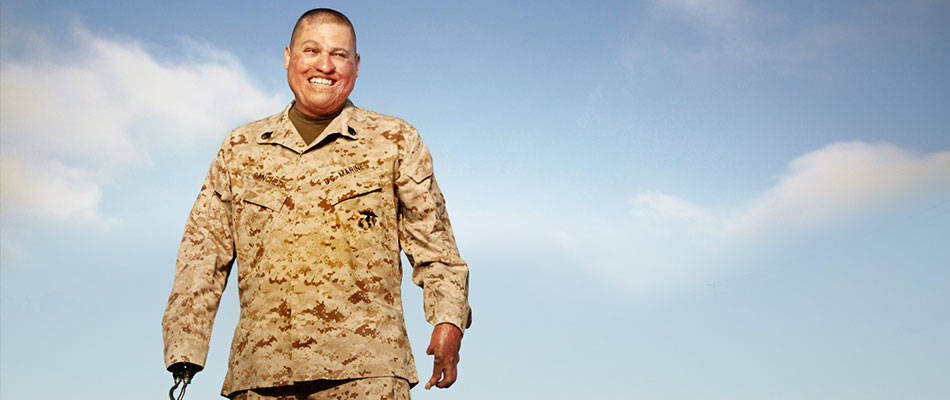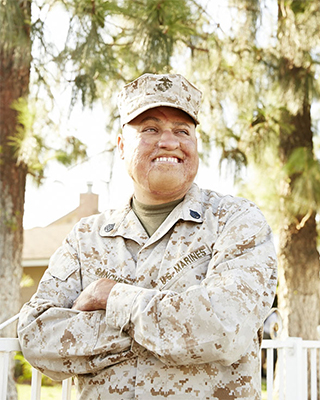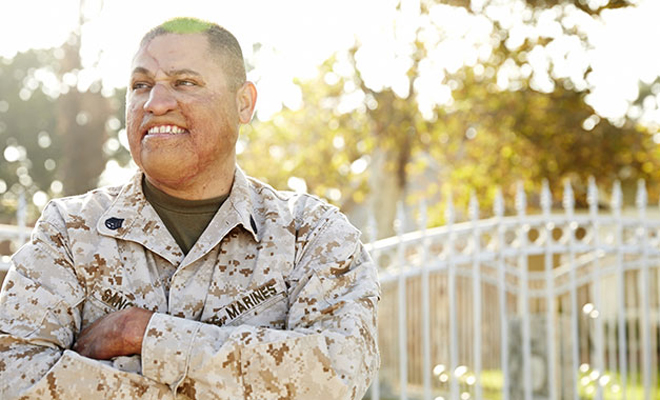Former USMC Staff Sergeant Octavio Sanchez is one of more than 100 military men and women who have been helped by the healthcare practitioners of UCLA’s Operation Mend.

The acronym is bland: IED. But the Improvised Explosive Device, particularly in its 21st century incarnation, is deadly. The fiery explosions can blow vehicles and their passengers literally to bits. Those who do survive may be burned, scarred and disfigured.
That’s what happened to Marine Staff Sgt. Octavio Sanchez in Iraq on a June day in 2005. A roadside bomb in Ramadi engulfed him in flames. Trauma surgeons saved his life, but he was left with third-degree burns over 70 percent of his face and body. His right hand was amputated; he lost the use of his left hand; his nose was burnt off. When he returned home, one of his four children said, “That’s not my dad.”
Sanchez, remembering buddies who didn’t survive, faced his injuries courageously. But he missed the everyday pleasures of playing catch with his kids or holding hands with his wife. He felt his children’s pain when people made fun of his appearance or stared at him. So he didn’t hesitate when Operation Mend was suggested to him, even though it meant multiple surgeries.
Operation Mend doctors were able to construct a new nose for Sanchez, using skin from his forehead, ear cartilage and a portion of a rib. His lips and cheeks were rebuilt. He now looks much more like the Marine who set off for Iraq.
Sanchez calls Operation Mend his second family, and he is always willing to tell his story. It is one of more than 100 stories of wounded veterans, both men and women, whose lives have been restored thanks to the continuing partnership among Ronald Reagan UCLA Medical Center, Brooke Army Medical Center (San Antonio, Texas), and the VA Greater Los Angeles Healthcare System.


